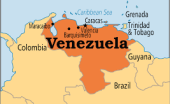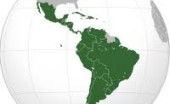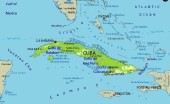So many memories, particularly of the years as neighbours on Rosemount Avenue, with shared activities, adventures and lively political discussions.…
Wednesday Night #955
Written by Diana Thebaud Nicholson // June 21, 2000 // David/Terry Jones, Health & Health care, Herb Bercovitz, John Ciaccia, Justice & Law, Reports, Wednesday Nights // Comments Off on Wednesday Night #955
See also Wednesday-Night.com
The good news is that David & Terry Jones [Washington] are returning to Montreal on a visit and will join us on Wednesday Night June 21st, armed with their insatiable curiosity and search for fodder for David’s splendid analytical pieces about all things Canadian and Québecois, particularly the politics and economics. Please come and join us – and them – this week for their annual Wednesday Night briefing.
“….there is one hope for Western civilization so long as your salon allows doers and thinkers to just talk and think–rather than go through life with no more thought than a frog hopping across a pond. Terry Jones
THE COURT DECISION ON LANGUAGE OF SOFTWARE
The Quebec Superior Court has ruled against the OLF in the case of the francophone employees of pharmaceutical companies who were forbidden by the OLF to use English software. Our good friend Julius Grey, who represented the workers, is quoted by the Gazette as saying: This is one of the most important judgments in recent years on the interpretation of language legislation. It appears that, contrary to the usual view of Mme Beaudoin in this circle, she actually has been on the side of Right, and encouraged the court clarification of the OLF’s powers. On the other hand, the OLF’s stubborn espousal of a rigid (and erroneous) interpretation of the law is somewhat mystifying.
The 10th anniversary of the Oka Crisis is fast approaching and this week, the Federal Government has, after 10 years, settled the matter in a manner which, had it been done in 1990, could have avoided the entire issue.
John Ciaccia’s forthcoming book
You get a sense of John as a public person but at the same time as a private person
Those guests fortunate enough to have had the opportunity of reading the manuscript of former M.N.A. John Ciaccia‘s soon-to-be-released book on the Mohawk crisis and his role as negotiator, describe it as a fascinating revelation of the real issues and of the inner soul of the author. In Rick Schultz‘s opinion, THE OKA CRISIS, A MIRROR OF THE SOUL is one of the most important – and readable – political memoirs to be published. (The official book launch is July 10th – there will be much more about this event on the Wednesday-night Web in the next days.)
EMBARGOES – DO THEY WORK?
The United States’ continuing boycott of Cuba and its seeming lack of effectiveness inevitably led to the question of the selective use of sanctions. Support of a dictator in Haiti led only to chaos (Many attempts at intervention in that poor country have proven equally fruitless). Absence of sanctions against China are explained by the belief that prosperity on its own may lead to greater freedom and democracy. To some this appears to be a naive defense in view of the appalling lack of democratic rights and freedoms in some of the Latin American dictatorships, Africa – remember Mobutu? – or the Middle East, to name only a few of the areas where there has been no U.S. intervention in favour of sanctions. It is probable that sanctions against South Africa played a significant role in bringing about change in that country. It was suggested that in South Africa’s case, support of the sanctions by a number of influential people – both black and white – contributed to the successful outcome. This would not appear to be the case in Cuba.
– Not one single person living here would want to live as a citizen of Cuba.
– Economic sanctions by themselves have never brought down a dictatorship. It is a statement.
– [The imposition of] sanctions is not necessarily to bring down a dictator. It is to prevent what would have happened if sanctions were not in place.
– I think they (sanctions) were a significant factor in bringing about change in South Africa.
CANADA AND HEALTHCARE
World Health Organization figures, released this morning, rank the performance of Canada’s healthcare system well behind France, Italy, Spain , Japan and a number of smaller countries including San Marino and Oman. (Consolation, perhaps, – the U.S. ranks 37th).
Canada is at a crossroads in healthcare. We have one of the best records of all countries in reducing the differences in quality of care between rich and poor but at considerable costs; now, however, some rationalization must take place. In the United States, despite a patchwork of programs, everyone is cared for in one way or another, with the initial costs being borne directly by the individual, catastrophic costs through private insurance, and the cost of health care for the indigent and the aged by the government. The bureaucracy required to run this type of system is more complex than that required for Medicare. Countries far less affluent than Canada have been able to provide quality health care at far less cost while dissatisfaction with the system grows in this country. There has been some talk of a free market health care system, but there can be no free market as long as entry of the number of professionals to the field is limited, with the principle of free entry being by far the less desirable alternative.
Various hypotheses have been advanced to explain the high cost/low satisfaction of the Canadian system. Cost of labour and strength of Unions, government bureaucracy, the universality factor, the unwillingness to subcontract to private agencies and facilities all have been proposed as causes to be remedied. It is possible that in both Canada and the United States, the real causes must be addressed, namely an aging population and the advent within the last half century of wonderful but expensive new technology. In one way or another, both Physician and Patient must accept either unacceptable costs or rationing. Rationing is in fact in effect now, but in a more random fashion than is desirable. Not all patients require the most sophisticated diagnostic or therapeutic procedure.
– It’s working less and less. The inherent weaknesses of a politically run system is that ultimately, politics plays a more important role than health.
– It’s a never-ending struggle to keep up with the fact that nature is more intelligent than we are.
– The private bureaucracy in the U.S. is probably worse than the public bureaucracy in Canada.
– We are living in a frustration period when the practice of rewarding excellence is out of fashion. There is also a strong sense of entitlement on the part of the medical profession. The nature of the patient is also changing.
– The patient now comes armed with all kinds of demands. My own take on it is we have a system that works, that we have to look at how the allocation works. We examine how we will allocate our resources.
THE MEDIA
There exists what to some, is an alarming concentration of ownership in the newspaper business, leading to less diverse coverage of news events and more uniform editorial comment. In fact, owners do not attempt to influence editorial content, but do tend to hire and promote journalists and columnists with views similar to their own. This can be a good thing where there is a sufficient number of newspapers in a given market to enable the reader to form an independent opinion from the various views presented in competing publications. Unfortunately, the tendency has moved away from hiring journalists with expertise in another discipline, capable of writing informed stories about their second area of interest. As there are more and more complex topics covered – and less and less expertise among those covering them – it appears inevitable that the reading public will be less and less informed.
– We don’t have journalists covering topics they actually know about.
THE ECONOMY
Whether for a short or long term, the economy appears to be changing course. In the United States, auto (HARLEY DAVIDSON AGAIN!) and furniture sales have been declining, inventories rising. Real earnings and real economic indicators have been declining. Core inflation (eliminating food and fuel) has remained within the normal one to three percent range. For these reasons, when it meets on June 27 and 28, the Federal Reserve will probably not change policy.
In Canada, core inflation has run at one percent less than in the United States. There has been no great pressure on wages. Auto sales are down, imports have slowed down, retail sales are down and inventories have risen. Leading indicators are moderately down.
In the unlikely event that the Federal Reserve raises rates, Canada will be forced to follow suit by 1/4% in order to protect the Canadian dollar.



